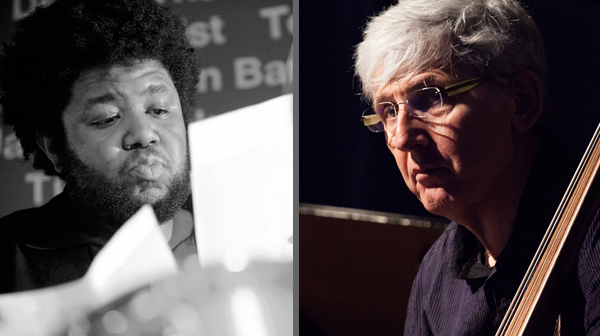
Two Approaches to Making a New Music out of the Traditions of Jazz
A conversation between two leading performer-practitioners of new musical genres arising out of the improvisatory history of jazz: Mark Dresser, composer and contrabassist; and Tyshawn Sorey, composer and percussionist. Moderated by Roger Reynolds, Pulitzer prize-winning American composer and University Professor, University of California, San Diego. The history of improvised music-making in the United States is a long and vibrant one that can perhaps be best approached by listening to those who are engaged now in the preservation and extension of the formative threads of the tradition. In this conversation, presented on March 16, 2015, as part of the Works in Progress series, Mark Dresser and Tyshawn Sorey consider their relationship with improvisation on the occasion of the 66th American Music Festival: Personal Visions at the National Gallery of Art. Moderated by Roger Reynolds, guest festival director, the discussion explores how the vocabularies of creative expression can be investigated, manipulated and experimented with by both composers and performing musicians. Improvisation is a discipline that is learned and exercised in more or less tightly shaped ways. Dresser and Sorey explain breaking down barriers in terms of pulse, changing metrical units, and metrical modulation; the categorization of and physical relationship to instruments; and how the performance venue affects audience reception. In the first live music performance in the Works in Progress series, Dresser demonstrates with his contrabass the idea of altering tempo through the phenomenon of metrical modulation—an alternative to the traditional 4x4 metrical unit.